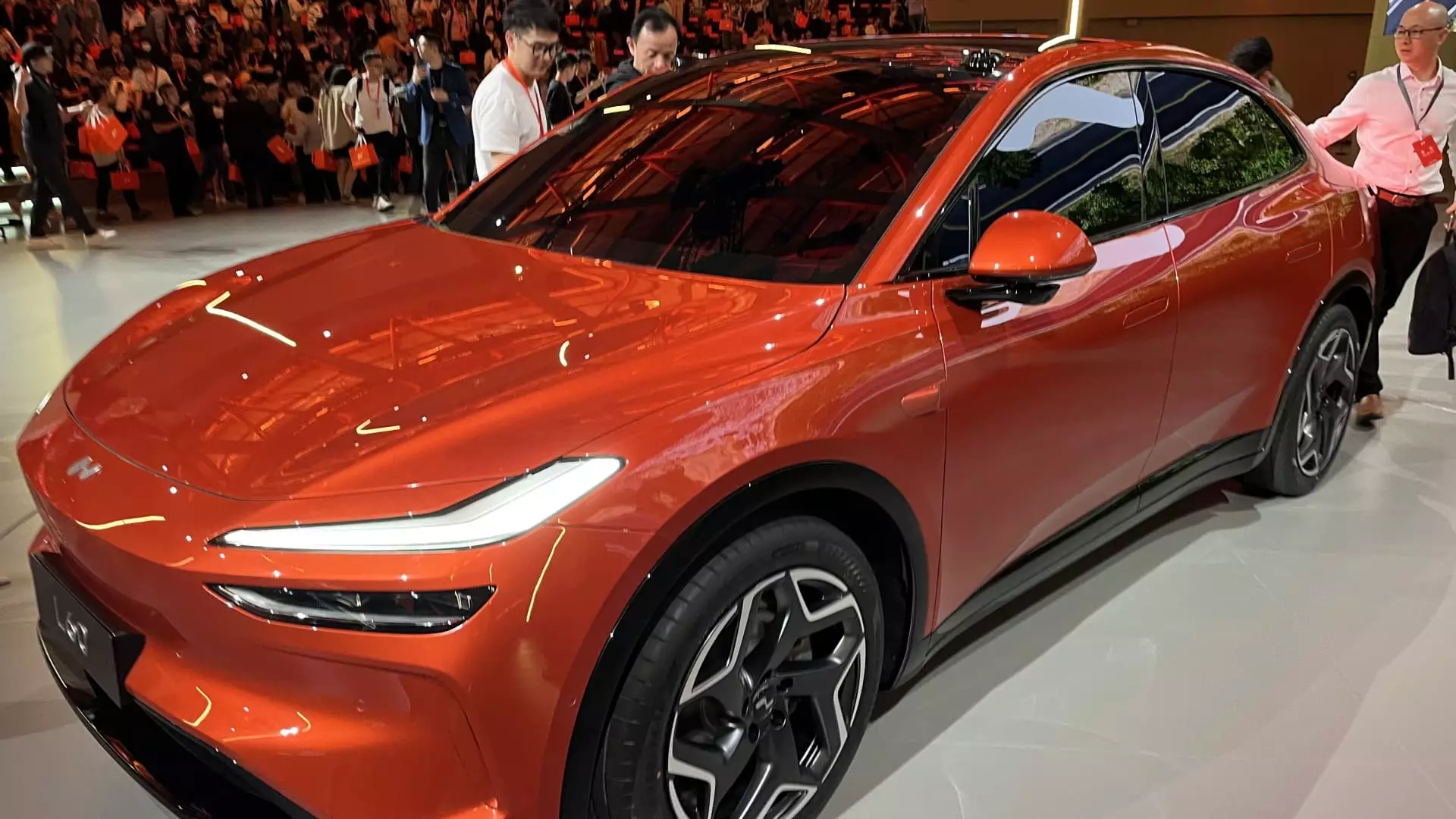In the ever-evolving landscape of electric vehicles (EVs), Nio has made a bold move with the launch of its new sub-brand, Onvo. Aimed at capturing a larger share of the budget-centric market, the Onvo L60 SUV enters a fierce competition to offer affordable electric mobility while challenging established players like Tesla. With prices starting from just 149,900 yuan (approximately $21,210) through a unique battery subscription service, Nio’s strategy reflects a growing trend in the EV industry to cater to a broader audience.
Nio’s pricing strategy for the Onvo L60 is particularly noteworthy. By offering the SUV at a lower entry price point than Tesla’s Model Y, which starts at 249,900 yuan, Nio aims to attract price-sensitive customers who may have previously viewed premium electric vehicles as financially out of reach. The L60’s price can be further minimized by opting for a battery-as-a-service model that allows customers to rent the vehicle’s battery, making it an enticing option for those who want to reduce upfront costs. This model is not only appealing for its affordability but also encourages future sales, as consumers may find the value proposition of lower monthly payments attractive.
While pricing is a critical component of this strategy, it also indicates a broader trend among Chinese EV manufacturers who are increasingly focusing on competitive pricing to leverage their edge in a rapidly growing market. The emergence of brands like Geely-backed Zeekr and Xpeng’s Mona further highlights the market’s shift toward affordability, indicating that competition in this sector is unlikely to relent.
Despite the optimistic outlook regarding domestic sales, Nio faces significant challenges in expanding its footprint in international markets, particularly in Europe. Recent developments regarding tariff increases on imported Chinese electric vehicles add to the uncertainty. The European Union’s investigation into subsidies has already placed Nio in a precarious position, with potential tariffs up to 20.8% on its vehicles. This could lead to either increased prices for consumers or thinner margins for the company, complicating its attempts to gain a foothold in Europe.
Nio’s strategy to focus on maintaining its presence in established European markets while cautiously exploring new territories suggests that the company is aware of the potential risks involved. Furthermore, CEO William Li’s comments on the extensive journey to establish a premium brand identity in Europe underline the hurdles ahead. Historically, building a robust brand presence in competitive international markets often requires significant time and investment.
Looking ahead, Nio has set ambitious targets for the Onvo L60, anticipating monthly deliveries reaching 10,000 units by December and aiming for 20,000 vehicle deliveries per month in the coming year. These goals, though optimistic, would require strong market reception and robust customer interest, especially considering the dynamic and evolving consumer preferences within the EV market.
Nio’s plans to open more than 200 retail locations throughout China and to penetrate international markets with additional low-cost brand launches, like Firefly, are evidence of a comprehensive strategy to scale operations. However, it remains to be seen whether these efforts can translate into sustainable growth within the highly competitive EV landscape.
Nio’s launch of the Onvo L60 epitomizes the aggressive tactics that several Chinese electric vehicle manufacturers are utilizing to compete on a global stage. With a compelling entry-level pricing strategy, Nio aims to carve out a piece of a burgeoning market that is increasingly swayed by affordability. Yet, as the EV space continues to evolve, the challenges posed by tariffs and brand establishment in international markets will be key factors that determine long-term success. As Nio navigates these waters, its performance in both domestic and international landscapes will be a litmus test for the broader ambitions of Chinese EV manufacturers as they seek to establish themselves in the ever-competitive global arena.

